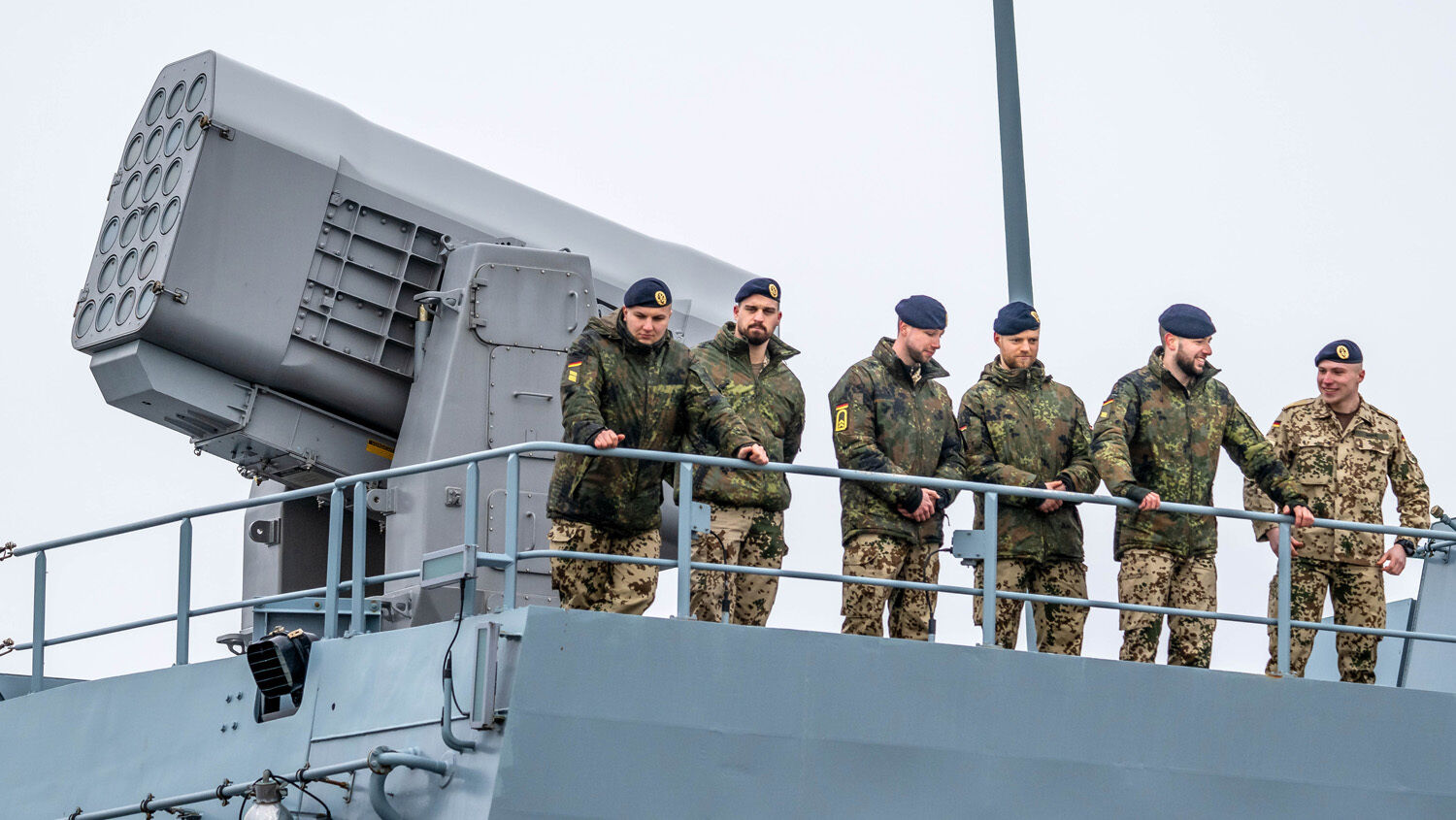
A European Military With Nuclear Weapons?
“On our way to a European army, [having our own nuclear bombs] could also become a topic,” European Parliament Vice President Katarina Barley told Tagesspiegel on February 13. Germany has debated whether it should acquire its own bombs, promote European Union-controlled bombs, or expand France’s nuclear umbrella. The EU military mission approved on February 19 could add urgency to this debate and turn contemplation into reality.
In “Threat From Tehran’s Nuclear Program: The West Must Show Strength Again,” Tagesspiegel wrote on February 19:
A former head of the Iranian nuclear program says: “We could build the bomb.” This should alarm the West. But the wars in Gaza and Ukraine are distracting it—and that is dangerous.
In the next few days, weeks or months, the EU will be forced to acknowledge this threat. Iran-backed terrorists have been undeterred by United States-led missions to secure the Red Sea. The transport of goods to Europe hinges on this crucial seaway. That’s why the EU approved its own mission to secure it. But this brings the EU into conflict with Iran, which is pursuing nuclear weapons.
This conflict will propel Europe’s nuclear debate more than Russia’s war on Ukraine or Donald Trump’s return to power. From a military standpoint, nothing is more frightening than facing a nuclear power without an independent nuclear deterrence.
But this debate faces some serious challenges, as nuclear weapons analyst and researcher Franziska Stärk told Deutsche Welle:
Suggestions in the EU context range from the EU developing its own arsenal to France and the United Kingdom substantially bolstering their arsenals and somehow kind of “Europeanizing” launch authority.
Personally, I’m highly critical of the feasibility of these suggestions. First of all, because the EU is not famous for making foreign-policy decisions easily. And I can hardly see how they can establish a chain of command for a presumably multinational nuclear force.
It took the EU months to send warships to the Middle East. How long would it take to approve a nuclear strike? For a nuclear response to be effective, it cannot wait for approval from parliaments or be subject to bureaucratic hurdles. Whether an EU army would use French, U.S., EU or even German bombs is secondary to the question: Who will call the shots?
Thus the way to a European army and the question of nuclear deterrence is ultimately a question of European leadership. As Trumpet editor in chief Gerald Flurry wrote in “Who Will Command Europe’s Armies?”:
After Afghanistan, Europe is urgently realizing that it needs its own independent military. More than ever people demand a European army. But who will command this army?
This important question has been shockingly missing from the debate!
No European president has the executive powers to lead such an army. When crises escalate and the United States isn’t there to help, Europe is helpless.
This desperate need for leadership leaves the door wide open for a strongman to take control.
Europe’s recent nuclear debate and current military mission is heightening this desperation and could open the door for this strongman to rise. Daniel 11:40 foretells that the first military act of this coming strongman will revolve around confronting Iran. As Mr. Flurry explains in The King of the South, this end-time clash could even involve nuclear weapons.
But the crucial key for this prophecy to be fulfilled is a dramatic change in EU leadership—and that is exactly where the current debate is leading. Watch these events closely, and you will see Bible prophecy being fulfilled.
